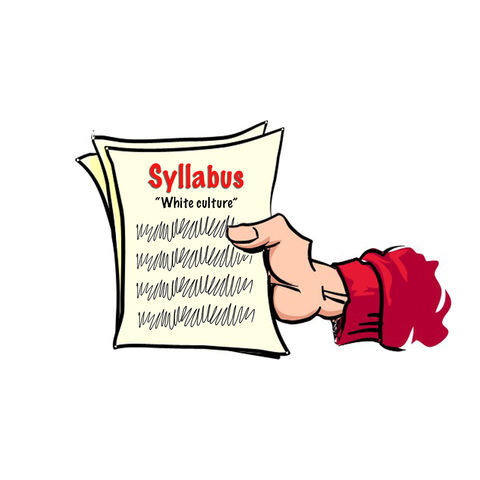For some students, benefits of going to college include broadened mental horizons and an expanded worldview. As a facilitator of the process, Texas State aims to create well-rounded individuals by having a General Education Core Curriculum, which requires students to take courses from a wide variety of subjects. However, when looking at the syllabi for these classes, there is a lack of diversity in the course materials.
Due to the circumstances of history, it is no secret most of the work in academia is dominated by white men. Consequently, these works shape and mold how students remember and approach the narratives of history. The lens students are taught to understand the world through is that of a white man. This leaves a significant population of Texas State’s student body either underrepresented or not represented at all. With 54.69 percent of the student body counted as non-white, it would be rational to assume materials listed on class syllabi would reflect the demographics of the students they serve, but this does not always happen. Students often need to go out of their way to access diverse materials.
Students of color, queer students, students with disabilities and many other marginalized communities at Texas State are not adequately represented. POC authors have contributed plenty to academia but are ignored by white scholars. Sprinkling authors like Sandra Cisneros and Toni Morrison in these core classes is not sufficient enough to alleviate the lack of diversity. Whenever the course material does not reflect the student population or the population at large, it tells marginalized students that their narratives do not matter.
To try and make up for this, Texas State offers minors, such as diversity studies, Latina/o studies, women’s studies and the newly established African-American studies, which begins fall 2019. These minors require courses with a diverse syllabus, including authors from intersecting marginalized identities. However, those courses are commonly not part of the General Education Core Curriculum, so majority of Texas State students are not exposed to these diverse resources. Students should not have to go out of their way to gain access to materials and courses that reflect their narratives. Diverse works need to become a part of the major voices of academia.
It is equally as important to learn from a variety of subjects as it is to diversify the lens we are taught from. It is not enough to only have the works of marginalized communities in diversity studies classes; general education courses should have the works of marginalized communities as a staple in the syllabi.
Students benefit from having access to diverse resources in core classes. This gives them a place to confront multicultural, race, gender or political issues in a setting that fosters learning. The National Study of Student Learning states that in-class and out-of-class interactions with diversity encourage critical thinking.
Learning from a diverse range of authors and narratives is vital. It is crucial we view the world from more than a white male perspective. Whenever white men dominate the syllabus, it carries the belief that only their perspective is valuable. Whiteness should not be the default setting for materials when taking core history, English, philosophy and other humanities classes. Texas State is not providing a well-rounded education to its students if whiteness dominates the syllabi.
It is time to decolonize the syllabi of general education courses. These courses should not endorse the works of white men as the apex of academia. There is a range of diverse experiences that Texas State students have and authors write about. The syllabi that dictate our education should reflect such. A truly well-rounded education includes the narratives of marginalized communities as a staple, not a token.
– Carissa Liz Castillo is an English senior
Categories:
School syllabi underrepresent voices of women, people of color
October 24, 2018

Learning from a diverse range of authors and narratives is vital. It is crucial we view the world from more than a white male perspective.
Illustration by Cameron Hubbard
0
Donate to The University Star
Your donation will support the student journalists of Texas State University. Your contribution will allow us to purchase equipment and cover our annual website hosting costs.
More to Discover





